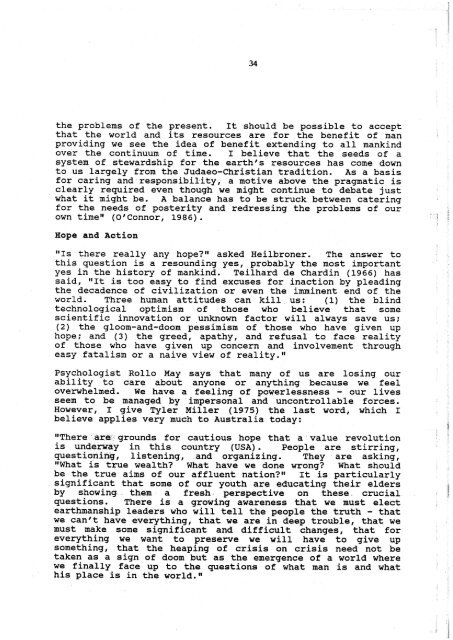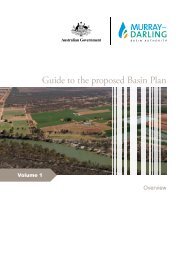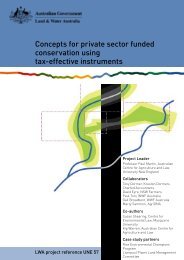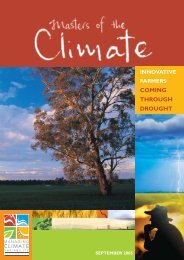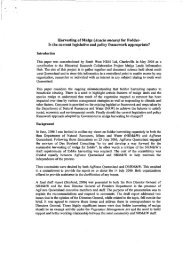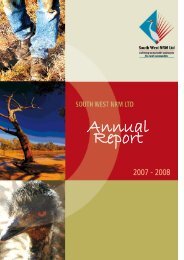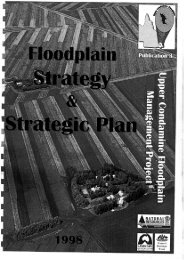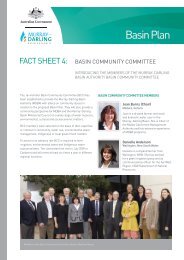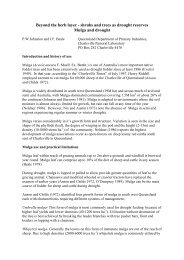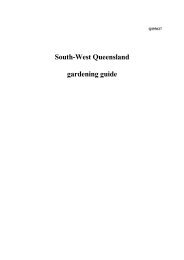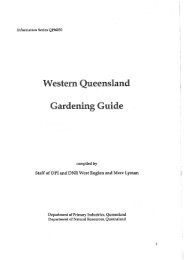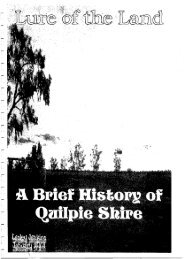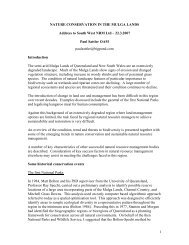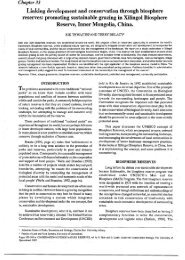soil-conservation-people-religion-and-land.pdf - South West NRM
soil-conservation-people-religion-and-land.pdf - South West NRM
soil-conservation-people-religion-and-land.pdf - South West NRM
Create successful ePaper yourself
Turn your PDF publications into a flip-book with our unique Google optimized e-Paper software.
the problems of the present. It should be possible to accept<br />
that the world <strong>and</strong> its resources are for the benefit of man<br />
providing we see the idea of benefit extending to all mankind<br />
over the continuum of time. I believe that the seeds of a<br />
system of stewardship for the earth's resources has come down<br />
to us largely from the Judaeo-Christian tradition. As a basis<br />
for caring <strong>and</strong>-responsibility, a motive above the pragmatic is<br />
clearly required even though we might continue to debate just<br />
what it might be. A balance has to be struck between catering<br />
for the needs of posterity <strong>and</strong> redressing the problems of our<br />
own timeit (O8Connor, 1986).<br />
Hope <strong>and</strong> Action<br />
"Is there really any hope?" asked Heilbroner. The answer to<br />
this question is a resounding yes, probably the most important<br />
yes in the history of mankind. Teilhard de Chardin (1966) has<br />
said, "It is too easy to find excuses for inaction by pleading<br />
the decadence of civilization or even the imminent end of the<br />
world. Three human attitudes can kill us: (1) the blind<br />
technological optimism of those who believe that some<br />
scientific innovation or -unknown factor will always save us:<br />
(2) the gloom-<strong>and</strong>-doom pessimism of those who have given up<br />
hope: <strong>and</strong> (3) the greed, apathy, <strong>and</strong> refusal to face reality<br />
of those who have given up concern <strong>and</strong> involvement through<br />
easy fatalism or a naive view of reality."<br />
Psychologist Rollo May says that many of us are losing our<br />
ability to care about anyone or anything because we feel<br />
overwhelmed. We have a feeling of powerlessness - our lives<br />
seem to be managed by impersonal <strong>and</strong> uncontrollable forces.<br />
However, I give Tyler Miller (1975) the last word, which I<br />
believe applies very much to Australia today:<br />
"There are grounds for cautious hope that a value revolution<br />
is underway in this country (USA). People are stirring,<br />
questianing, listening, <strong>and</strong> organizing. They are asking,<br />
"What is true wealth? What have we done wrong? What should<br />
be the true aims of our affluent nation?" It is particularly<br />
significant that some of our youth are educating their elders<br />
by showing them a fresh perspective on these. crucial<br />
questions. There is a growing awareness that we must elect<br />
earthmanship leaders who will tell the <strong>people</strong> the truth - that<br />
we can8t have everything, that we are in deep trouble, that we<br />
must make some significant <strong>and</strong> difficult changes, that for<br />
everything we want to preserve we will have to give up<br />
something, that the heaping of crisis on crisis need not be<br />
taken as a sign of doom but as the emergence of a world where<br />
we finally face up to the questions of what man is <strong>and</strong> what<br />
his place is in the world.


